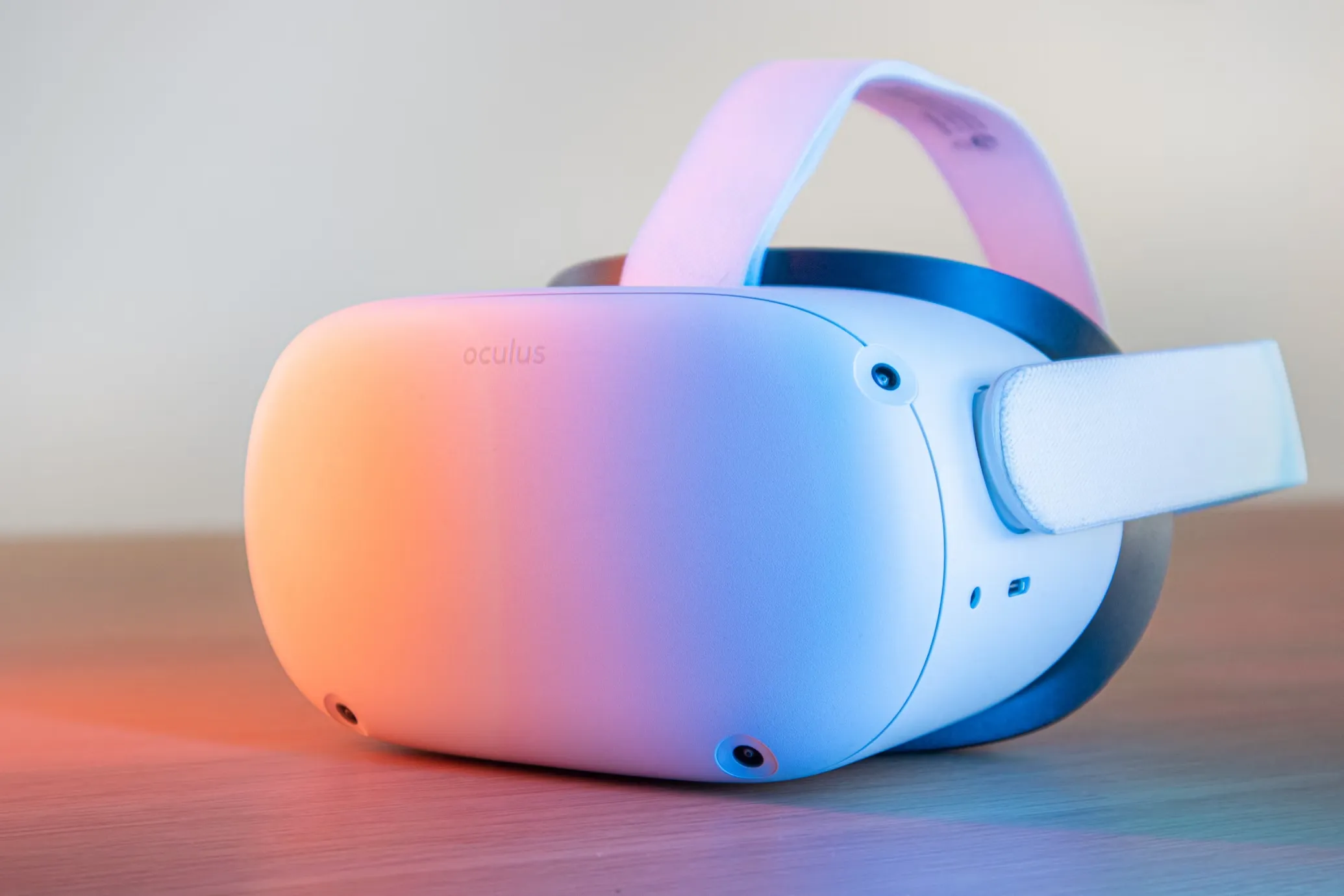· 3 min read
Using a VR Headset as a Work Computer
Discover how virtual reality is revolutionizing remote work by transforming any space into your ideal office environment, complete with infinite monitors and immersive workspaces.

In recent years, virtual reality has evolved far beyond its gaming roots to become a powerful tool for productivity and remote work. With the advent of high-resolution VR headsets and sophisticated virtual desktop applications, professionals can now transform any space into their ideal work environment. Let’s explore how VR is changing the way we work and why you might consider making it part of your daily workflow.
The Virtual Office Revolution
Imagine being able to work from anywhere with a setup that rivals the most elaborate desk configuration. Virtual reality makes this possible by allowing you to create multiple virtual monitors of any size, positioned exactly where you want them. Whether you’re in a cramped apartment or traveling on a train, you can instantly deploy a multi-monitor setup that would be impossible in the physical world.
Working on the Go
One of the most compelling use cases for VR workstations is mobile productivity. Picture this: you’re on a long-haul flight, confined to a cramped economy seat. Instead of hunching over a laptop screen, you put on your VR headset and find yourself in a spacious virtual office with:
- A massive primary display floating at the perfect height
- Secondary monitors for reference materials and communication tools
- A serene virtual environment that helps you focus despite your surroundings

Infinite Monitor Real Estate
Traditional desktop setups are limited by physical space and budget constraints. With VR, these limitations disappear:
- Create as many virtual monitors as you need
- Size each screen to your exact preferences
- Arrange displays in physically impossible configurations
- Switch between different workspace layouts instantly
Immersive Environments for Enhanced Focus
One of the most underappreciated aspects of VR workspaces is the ability to choose your environment. Having trouble focusing in your home office? Transport yourself to:
- A peaceful mountain cabin with snow falling outside
- A modern office overlooking a cityscape
- A serene beach setting with gentle waves
- A minimalist void for maximum focus

Real-world Applications
VR workspaces are particularly valuable for:
- Software developers who need multiple code windows
- Financial professionals monitoring various data streams
- Content creators working with multiple applications
- Remote workers seeking to escape distracting environments
Practical Considerations
While VR workstations offer incredible benefits, there are some important factors to consider:
- Battery life and power management
- Comfort during extended use
- Resolution and text clarity
- Integration with physical keyboards and input devices
Tips for Getting Started
If you’re interested in trying VR for work, here’s what you’ll need:
- A high-resolution VR headset (Meta Quest 3, HP Reverb G2, etc.)
- Virtual desktop software (Immersed, Virtual Desktop, etc.)
- A comfortable controller or keyboard setup
- Good internet connectivity for remote desktop streaming

The Future of Work
As VR technology continues to advance, we’re seeing improvements in:
- Display resolution and clarity
- Comfort and ergonomics
- Battery life and portability
- Mixed reality capabilities for real-world interaction
Conclusion
Virtual reality workstations represent a paradigm shift in how we think about workspace design and mobile productivity. While the technology is still evolving, the benefits are already clear for many use cases. Whether you’re a digital nomad looking to maximize productivity on the go, or simply someone who wants the perfect work environment regardless of physical constraints, VR workstations offer a compelling glimpse into the future of work.
The ability to create your ideal workspace anywhere, complete with infinite screen real estate and customizable environments, makes VR an increasingly attractive option for modern professionals. As the technology continues to mature, we may find that physical monitors become as obsolete as CRT displays are today.
- VR
- productivity
- technology
- remote-work
